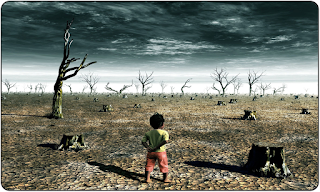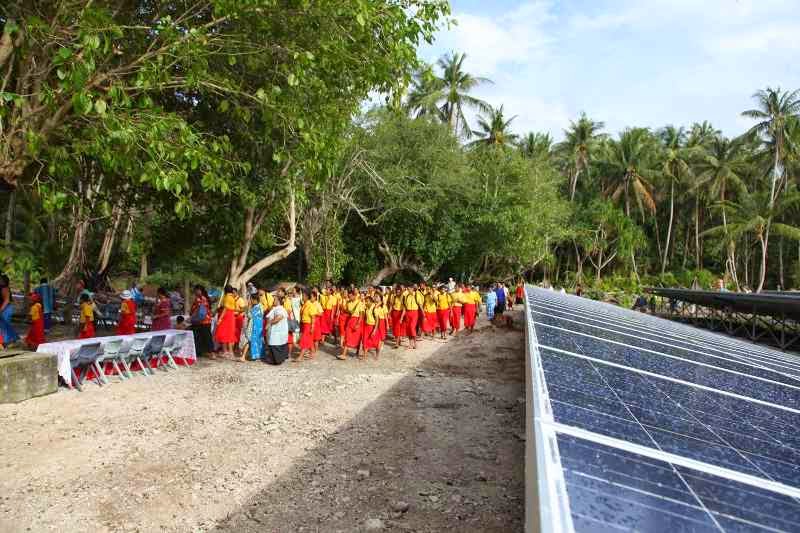The Change Is Here!
The first quarter of the year in
Nigeria has always been noted as usually the hottest period with regards to
weather variability and default seasonal pattern. This period is usually
characterized with high solar intensity and consequently high temperature
build-up which in a lot of ways causes a great deal of discomfort to people.
However, the hot period is often short termed as the raining season breaks the
hot cycle with the usually long wet months which invariably usher in the period
of plenty (Food production).
However, the first quarter of
2016 has recorded the hottest so far in this part of the world. The temperature
was unusually higher than favorably normal while the accompanied heat wave
broke every precedent record. And just
as if the physiological discomfort is not enough, some food items have taken on
the side of becoming very out of reach for the common man. An instance is that
of the common and once affordable tomato fruit that has now become so scarce
and expensive to obtain and now could be temporary classified as food for the
rich. Now that all seem like the most unlikely year with the unusual unfolding
events, it is just reasonable to realize that the problem at hand is quite an
interconnected one with a pointer in the direction of the changing climate.
Inferences and insights on the
prevailing Agro-weather situation in the country as described in the preceding
paragraphs show a lot of link with the direct impact of climate change on the
weather condition and at the same time on food production. In a lot of ways, this
period seem to have presented a perfect platform to show the vivid picture of
what climate change is and of course its related impacts to the hard-to-crack
or rather ignorant Nigerians who overtime have found it difficult to reason out
the phenomenon of the changing climate.
While the country is currently
facing a steep downturn financially, climate change has further added to the
hardship been faced by the teeming population as essential agro-dependent
consumable provisions are becoming rather out of easy reach. Agricultural
outputs have largely dwindled as a result of weather variability and in turn
impairing food production and availability. Another probable climate linked
impact is the now prevalent invasion of the Northern Fulani herdsmen in the
south. The aridity status of the northern part of the country has led to the
herdsmen southward’s migration in search of edible vegetation for their cattle
and with this a number of farmlands have been destroyed and leveled aground.
This has invariably led to a number of mortal clashes with farm owners.The herdsmen in turn,
have recorded loss of lives and property.
The variability in weather
condition on its own however has a rather constant attribute, heat build-up.
This heat build-up arises from the ever rising temperature through the
greenhouse effect. This escalating temperature in a way has been linked to some
disease outbreak and spread among the human population and just in the same
way, the incidental rise of pathogenic attack on plants and livestock. Such
could be the case with the current problem with the availability of tomatoes in
Nigeria. The problem has been linked to a disease outbreak (Tomato leaf miner
disease) that has led to the destruction of about 40% of anticipated harvest. The disease has been noted to be spreading at
an alarming rate and this has even called for the declaration of a state of
emergency in some parts of the northern states.
The leaf miner disease has been
on a migratory trend with its point of origin in South America and now
spreading fast through Europe and Africa. In the manner of considering the
shifting trend of the global ecosystem as a result of climate change, some once
localized latent disease have found possible conditions to assuming the status
of full blown epidemics and an above average spread rate potential. The leaf
miner disease is on rampage in Nigeria and to a great extent the possibility of
the link with the impact of climate change is quite on the high side of
certainty.
So, in the manner of the
unfolding events in the country as of today, climate change seem to bare itself
in its absolute nakedness and the clarity of its impacts is altogether becoming
more obvious after all. Now seems just the time when the government needs to
work out a way of facilitating extensive extension programs so as to
accommodate the necessary awareness to effect practices that would ensure
adequate adaptation to the changing climate. Also, it’s just the right time to
speed up the passing of every necessary bill that would facilitate the
activation of the template of adaptation and mitigation contained in the
country’s submitted intended nationally determined contribution to the United
Nations Framework Convention on Climate Change.
Sincerely
Yours Earthly
Dele
oni




Comments
Post a Comment